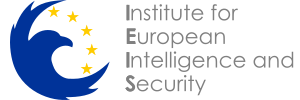By independently providing expert verification of competency, the Institute guarantees a registrant’s fitness to practice and act in the public interest. Each year the Institute creates a pool of 3% of registrants, automatically including any individuals in receipt of a suspicious activity report or complaint and made up to minimum required levels by random selection. Those audited are provided with the reason for audit (SAR, complaint or random selection) and are required to submit a portfolio of evidence demonstrating compliance with minimum professional and ethical standards since they were first registered or last audited, whichever is the shorter. The Institute will never ask a registrant to evidence activity more than 5 years old.
If, on receipt of the portfolio, minimum requirements have been consistently met, the registrant will be removed from the audit pool and re-certified. If standards have not been met, registration will be revoked. In the event of revocation, the registrant may submit additional evidence in support of their audit or appeal the decision. A registrant who fails audit and wishes to re-register may do so subject to a capability assessment. The findings of the capability assessment may require additional training, work experience in practice or through exercise and/or additional requirements. Registrants struck from the register as a result of failed audit are free to re-apply at any time.
This process provides an ongoing assurance of quality in those upon the professional register.
Organisational Assurance
As an organisation independently recognised as meeting professional standards, organisational capabilities are quality assured by independent qualified assessors against industry standards, guaranteeing fitness to practice and act in the public interest.
Professional affiliates, licensed institutions and independently assured organisations have Institute appointed assessors within the organisations themselves with responsibilities for ensuring that professional standards are upheld. The independence of these assessors is guaranteed and protected by contract, with both the Institute and the organisation reserving the right to dismiss them from their role as assessor at any time. This requires assessors to balance both the needs of the employer and the requirements of the Institute in practice.
Assessors liaise with the Institute, providing necessary information on oversight and governance in accordance with both organisational and Institute policy. Policy conflicts are resolved in arbitration between Institute and organisational decision-makers with the assessor in attendance as the arbitrator.
Systemic violations of professional standards or Institute policy by organisations are escalated to the Inspectorate via the disciplinary and investigative oversight procedure. This process guarantees independent, expert oversight and governance without compromising the anonymity or security of intelligence organisations. In doing so, this also provides the highest assurance of quality in conduct and services.
Service Enhancement
Professional registration increases the quality of services and the value proposition an organisation offers to clients. Specifically with regards to ethics, oversight, capability and competency. One of the largest concerns affecting corporate and government procurement of covert intelligence support services is that of ethics. Ultimately, the customer may know very little about the supplier and it can be impossible to tell the difference between a supplier that has conducted themselves ethically and responsibly in the past and one that just hasn’t been exposed yet.
Professional membership affords just that kind of re-assurance. The guarantee that an organisation has policies and procedures in place to guarantee ethical standards compliance and that external assessors are in place within the organisation to ensure that occurs. Oversight of private and public intelligence organisations doesn’t only benefit the complainant or the aggrieved but the wider public, the organisation itself and political or judicial officials who may otherwise have heard the case. Realised benefits depend upon how the two groups use the oversight machinery to work together, but many benefits to the organisation can result.
It is common for organisations subject to oversight to realise reductions in whistleblowing and leaks as insiders have an external means of redress, reductions in litigation costs as grievances can be addressed outside of the legal system as well as reductions in misconduct, malpractice and negligence. The public and customers are also reassured by increased transparency and accountability, appeal procedures tend to improve internal misconduct investigations and improvements are encountered in public image, relations, understanding and confidence, especially surrounding high profile incidents.
Even cases involving the validation of a complaint result in improved organisational policies and procedures, preventing recurrence of similar issues in the future. All these benefits support the goals of a public service using problem-solving and cooperation to address concerns instead of provoking conflict.
The Institute can also enhance the services offered by accredited organisations by lending its own capabilities to theirs and assisting them in developing new capabilities within their organisation. The Integrated Competency Framework (ICF) provides an ideal structure with which to develop the knowledge and skills required of cutting-edge intelligence capabilities. The Intelligence Academy provide assistance and training to develop these capabilities in accredited organisations and constantly revises frameworks, techniques and tactics in response to emerging research from academia and professional practice in industry.

